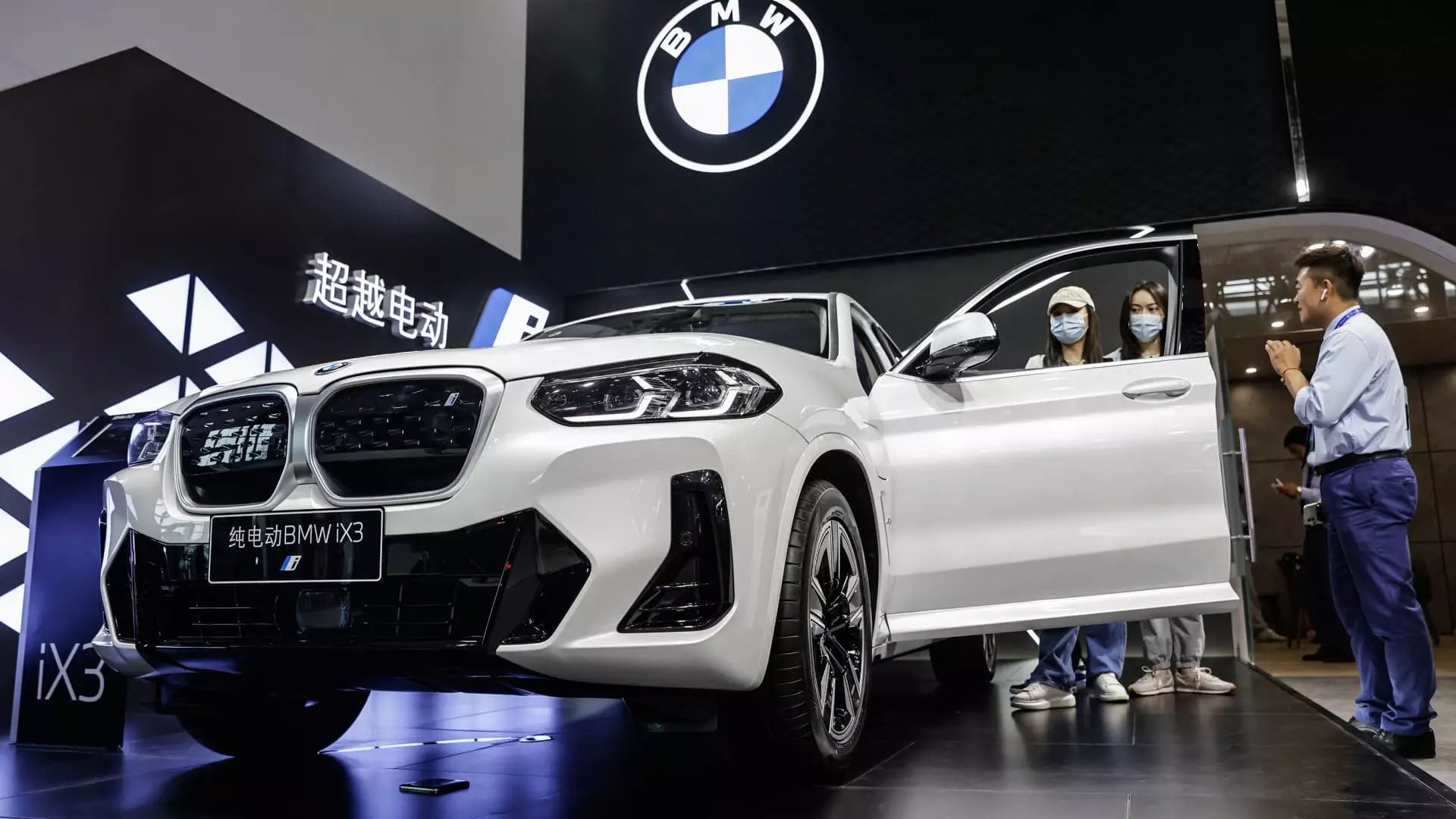In 2024, BMW’s net profit plummeted by an astonishing 36.9%, dwindling to 7.68 billion euros ($8.32 billion). This steep decline is not just a worrying statistic; it serves as an ominous reflection of broader trends affecting the global automotive industry, particularly the continuing lackluster demand in China. Investors reacted predictably, reducing share prices by 2% in early trading on a grim Friday morning. Such volatility raises serious questions about the health of BMW and its capacity to adapt to an ever-evolving marketplace.
The Tariff Trap: A Necessary Evil or Economic Blunder?
One of the key culprits behind BMW’s profitability issues appears to be the imposition of tariffs. The company’s cars are now subject to a range of tariffs that significantly impact financial forecasts. BMW anticipates a car earnings margin between 5% and 7% for 2025, a dip from last year’s 6.3%. This margin is not merely a number; it speaks volumes about how current geopolitical tensions—particularly trade disputes involving the U.S., China, and Canada—are constraining corporate earnings. However, such reliance on tariffs to manage competition raises an alarming question: Are we witnessing a misguided step back into protectionism?
CFO of BMW has pointed out that tariffs on U.S. imports could decrease their automotive earnings by 1 percentage point. While protective measures may have provided temporary relief in the past, today’s landscape of interconnected markets renders these strategies outdated and potentially harmful. If anything, the intensity of globalization makes bold claims about the enhancement of competitiveness through tariffs seem deceitful at best.
Challenges Beyond Tariffs: The Chinese Market’s Doldrums
Equally concerning is BMW’s ongoing battle in the Chinese market, where sales continue to stagnate. Deliveries dropped to around 2.45 million units last year from 2.55 million in 2023, a dip attributed to quality control issues rather than the demand itself. The faulty braking systems provided by suppliers like Continental are a reminder of how fragile supply chains have become in today’s world. Tariff hikes and logistical roadblocks are not just business nuisances; they symbolize a deeper dysfunction in an industry that once thrived on innovation and speed.
CEO Oliver Zipse paints a bleak picture but also hints at a glimmer of pragmatism. Critically, he argues that past strategies such as tariffs are no longer suitable for today’s global market dynamics. In a world that’s more interwoven than ever, Zipse’s assertion seems to resonate deeply. Purely adversarial economic policies are short-sighted in an age where collaboration and free trade have proven to be key to sustained growth.
Adaptation: The Key to Surviving a Tumultuous Future
The question lingering in the minds of investors and consumers alike is whether BMW can pivot fast enough to mitigate these threats. Both tariff-induced economic pressures and market instability call for a shakeup in traditional business models. It is imperative that BMW embraces new avenues for growth—whether through innovation, strategic partnerships, or a renewed focus on customer engagement.
Critically, the automotive giant must rid itself of archaic methods and invest seriously in adaptability. The world is evolving rapidly, and those who cling to outdated mechanisms will not thrive. As BMW navigates this tumultuous landscape, it must recognize that innovation and collaboration may ultimately hold the key to crystallizing its position in an increasingly competitive market.

